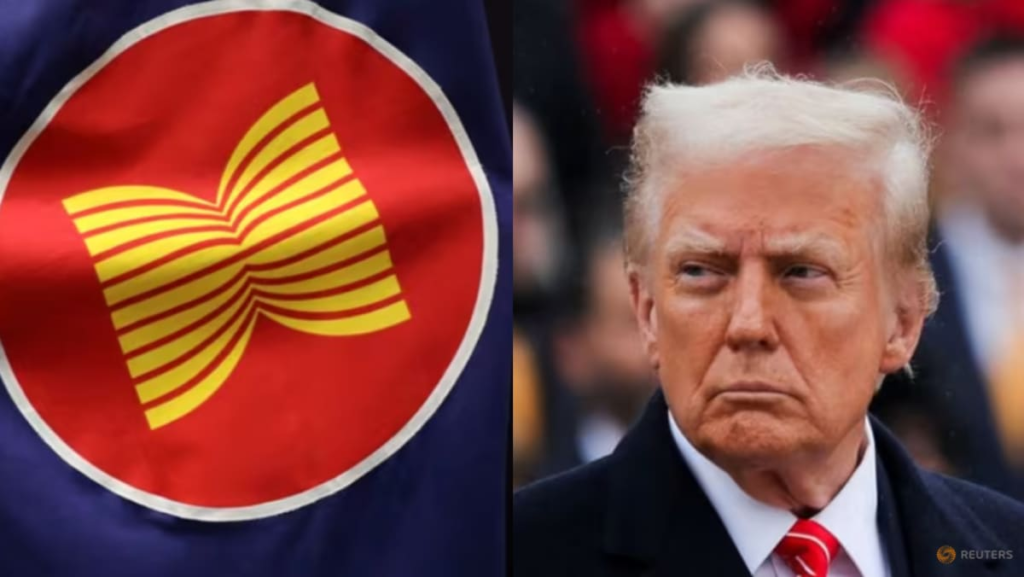WHAT ASEAN AND SINGAPORE SAY
Malaysia chaired a special ASEAN Economic Ministers’ virtual meeting on Thursday morning to address the impact of US tariffs on regional trade and investment and to coordinate a collective response.
The special meeting was attended by the economic ministers of all 10 ASEAN member states and Timor Leste, as well as the secretary general of ASEAN.
Timor Leste has been granted observer status and in-principle approval to join the bloc.
Following the meeting, ASEAN released its statement covering the meeting and the impact of the tariffs on member states. On the same day, Singapore’s Ministry of Trade and Industry also released a statement.
In its statement, ASEAN said that it was deeply concerned over the unilateral tariffs by the US, including the tariffs announced on Apr 2 and subsequently the most recent suspension on Apr 9.
It said that the developments had caused uncertainty and will bring significant challenges to businesses, especially micro, small, and medium enterprises as well as to global trade dynamics.
“The unprecedented imposition of tariffs by the US will disrupt regional and global trade and investment flows, as well as supply chains, affecting businesses and consumers worldwide, including those of the US.
“It will also impact economic security and stability, affect the livelihoods of millions of people in the region, and hinder economic progress in ASEAN, particularly less developed economies, and the long-standing ASEAN-US economic and trade relationship,” it said, noting that the bloc was the US’ fifth largest trading partner last year.
ASEAN said it reaffirmed its readiness to work together with the US under the ASEAN-US Trade and Investment Framework Agreement (TIFA) and Expanded Economic Engagement (E3) Workplan, to explore mutually acceptable solutions on issues of common interest.
“These include facilitating two-way trade and investment, deepening strategic trade partnerships, and enhancing supply chain connectivity and resilience through digital technology and innovation that can promote stronger regional cooperation,” it said.
TIFA, which was signed in 2006, is a framework agreement that aims to strengthen trade and investment ties between the US and ASEAN while the E3 Workplan is a framework established in 2012 by both sides to promote increased trade, investment, and economic cooperation.
ASEAN said it believed that an enhanced, robust and forward-looking ASEAN-US economic cooperation framework will contribute to the prosperity of their peoples and the broader global economy.
“Such a framework would strengthen constructive engagement, foster regional supply chains and drive innovative initiatives to ensure a resilient, secure, stable, and mutually beneficial economic relationship with particular focus on high-value sectors,” it said.
These sectors included digital services and knowledge-based industries, food, agriculture and forestry, green technology and renewable energy, advanced manufacturing and electronics, garment and footwear, travel goods, healthcare and biotechnology, and transport products and equipment,” said the statement.
Read the full article here

